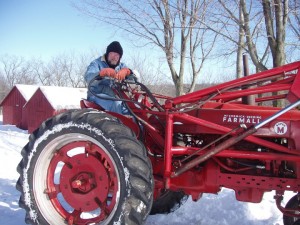It has been fairly common for discussions of gun safety and gun violence to take place in the wake of horrible tragedies. For years the opponents of greater gun regulation (at least the mobilized portions of the pro-gun lobby) would respond to calls societal dialogue on gun issues with the rejoinder, “it’s too soon”. They seemed to imply that somehow the emotions evoked by mass killings made it impossible to discuss policy.
The public response to the actions taken by the Parkland, Florida students after the mass shooting there seemed to flip that equation. Suddenly the “victims” were no longer silent. They organized, built coalitions with inner city youth in places where gun deaths have left a steady stream of blood for years, and even sat down with pro-gun advocates in an attempt to understand “the other side”.
My colleague Shannon Wheatley Hartman has followed these issues for years. I have organized a number of discussions among gun owners in rural Wisconsin. We have been trying to tease out the possibilities for common ground between the two sides of the “gun debate”. As I have reported in the past, there are some apparent areas for agreement (background checks, mental health initiatives, etc). But the post-Parkland phenomena also raised the possibility that there might be entirely different way to discuss these issues. It turns out that way might be the familiar IF terrain of values and concerns.
In a round of February discussions in Richland Center, WI I posed questions to gun owners inviting them to say what they would like gun regulation proponents know about gun owners and firearms issues. Shannon contributed two follow-up questions that asked these gun owners to tell a story about what gun ownership means to them and to put themselves in the shoes of those who feel greater regulation is necessary. Finally, the participants themselves came up with a case study of “failed gun regulation”: the Clinton-era assault weapons “ban”.
Much of what gun owners had to say had to do with direct experiences with firearms in rural America. It rarely had much ideological content and the 2nd Amendment was mentioned only in passing. More to the point was the desire to be known as law-abiding citizens who pursued shooting sports without violent incident. They approached the assault weapon ban from the standpoint that millions of such weapons are in private hands (and that crimes by those owning them legally are exceedingly rare), that modifications and after-market components create regulatory challenges (a simple part replacement can create an “assault weapon” out of what was a “hunting rifle” moments before), and that much can be done to respect the rights and traditions of gun ownership while keeping firearms out of the hands of those who should not possess them.
The “common ground” portion of the discussion yielded possibilities for actions large (background checks) and small (gun storage issues), but, more to the point, there was a spirit here of offering up solutions, not grudging concessions. Maybe we could call that spirit “Do the Right Thing”.
 Dennis Boyer is a PA native who now lives in WI, a Vietnam veteran who achieved an expert marksmanship rating, and spends much of his time outdoors.
Dennis Boyer is a PA native who now lives in WI, a Vietnam veteran who achieved an expert marksmanship rating, and spends much of his time outdoors.

